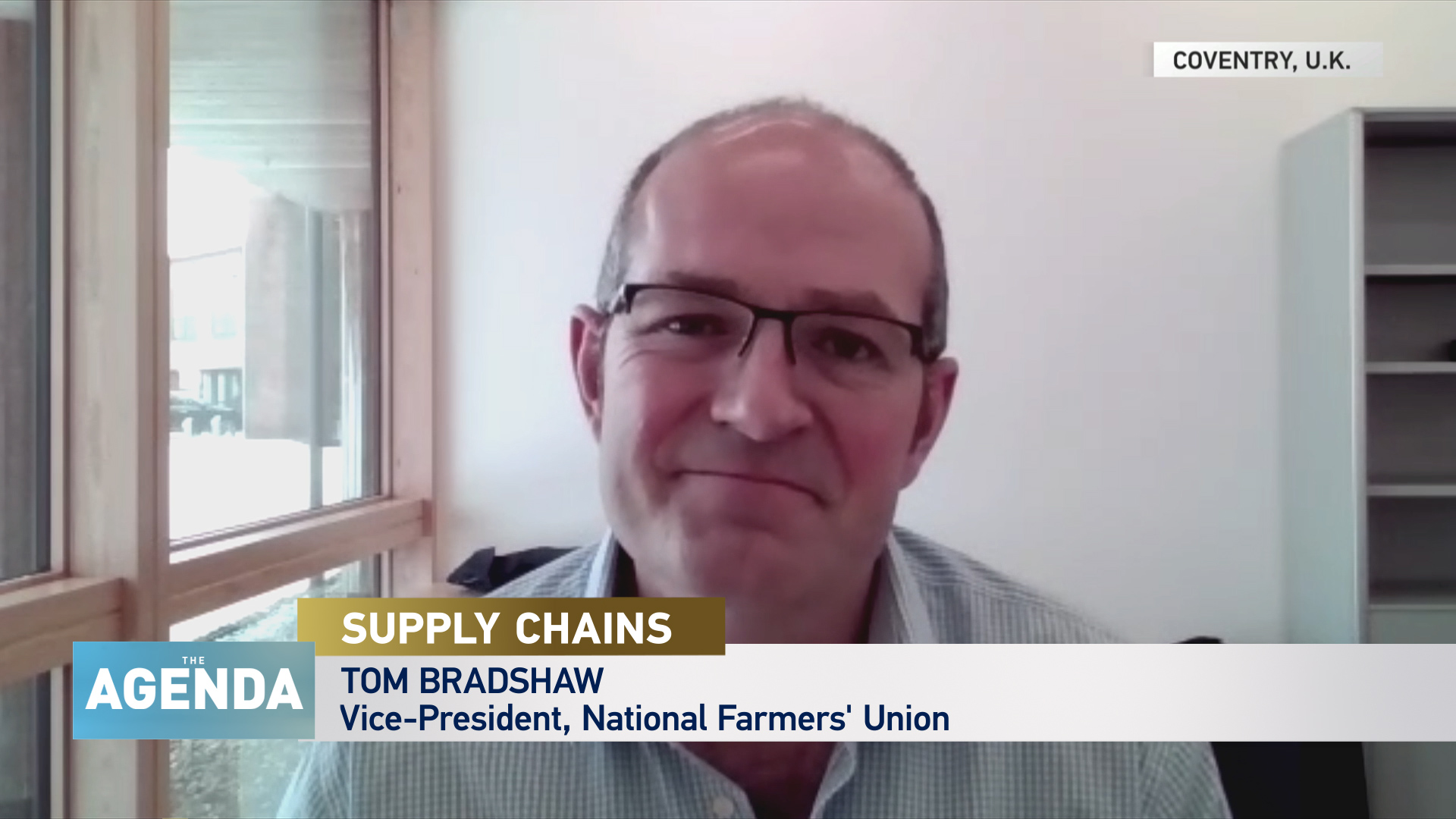04:25

WHAT'S THE ISSUE ?
Despite shortages not being as evident as they were at the start of the COVID-19 pandemic, they've still not recovered to pre-coronavirus levels.
The sight of empty supermarket shelves has become increasingly common in much of the world over the past few months, with food supply chains being particularly hard hit by the pandemic, along with labor shortages.
Tom Bradshaw, vice-president of the UK's National Farmers' Union, joins The Agenda's Stephen Cole to discuss what needs to be done to solve the problem.
Bradshaw says there is now a systemic problem or challenge within supply chains, adding that he hopes people are beginning to value the things they've always taken for granted, because customers have to accept their choices will become restricted:
"It isn't normal to be able to walk into a retailer and expect them to stock everything every day of the year … we have to think about seasonal produce and about buying local and seasonal because they're the things that start to impact climate change as well and reduce our environmental footprint if we're eating those things that are produced seasonally."

MEET THE EXPERT
Tom Bradshaw is vice-president of UK's National Farmers' Union (NFU) and former chair of Combinable Crops Board.
The NFU represents more than 46,000 farming and growing businesses. Their purpose is to champion British agriculture and horticulture, to campaign for a stable and sustainable future for British farmers and to secure the best possible deal for members.


ALSO ON THE AGENDA
- Mickey Howard, professor in sustainable supply chain management at Exeter University, explains the fragility of supply chain systems as well as why limited supplies of lithium could prove to be the next big conundrum for consumers.
- Tom Van Woensel, director of the European Supply Chain Forum and professor of freight transport and logistics at Eindhoven University of Technology, explains the impossible task of planning for the "unknown unknowns" and why it's not always in a company's interest to build supply chains that can sufficiently cope with unlikely, but severe, natural disasters.
- Qu Qiang, assistant director of the International Monetary Institute at Renmin University of China, tells Stephen Cole China wants to share its capacity and production power with other countries to make the overall global shipping process easier and cheaper for all.

